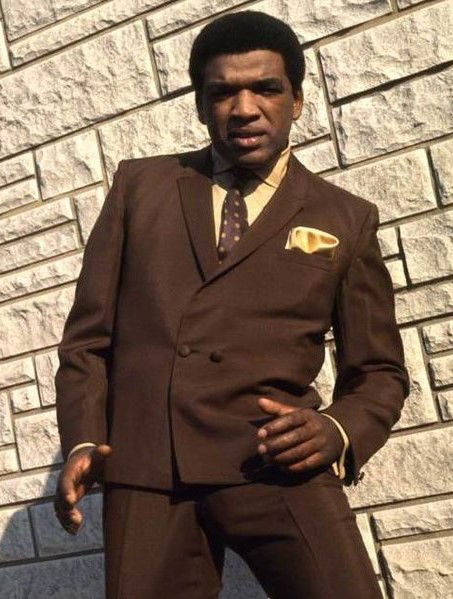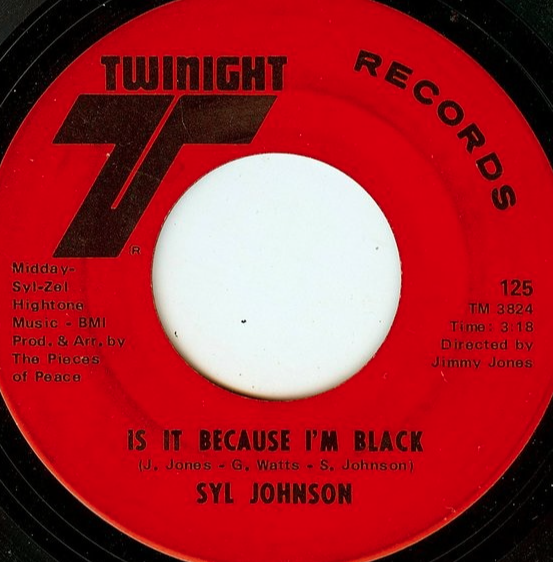SYL JOHNSON

Syl Johnson was a blues-based soul singer whose recordings have been sampled by the likes of Wu-Tang Clan, Jay-Z, Kid Rock and Kanye West.
He was born in Holly Springs, Mississippi, on July 1, 1936. Fourteen years later, he and his family moved to Chicago. Johnson performed with legendary blues acts like Magic Sam, Billy Boy Arnold, Junior Wells and Howlin’ Wolf. In 1959, he recorded duets with Jimmy Reed for the Vee Jay label and made his solo debut on the Cincinnati-based Federal Records. Freddy King played guitar on the latter.
By the middle 1960s, Johnson was recording for the Twinight label in Chicago. His first charted singles came in 1967 and kicked off a four-year string of hits on the Rhythm and Blues chart. Johnson’s biggest record for Twinight—and arguably his best recording—was the socially conscious ballad, “Is It Because I’m Black,” in late 1969.
In 1971, Johnson signed with Hi Records out of Memphis. He worked with Willie Mitchell, who also wrote and produced hits for the likes of Al Green, Ann Peebles and Otis Clay. Johnson’s 1975 recording of “Take Me to the River” became his all-time biggest hit, though the song itself is more closely identified with Al Green. (It was also a 1978 pop hit for Talking Heads.)
After he left Hi, Johnson started his own label, Shama, on which he released two self-produced albums. For the second, Ms. Fine Brown Frame, he landed a distribution deal with Neil Bogart’s Boardwalk label. In 1982, the title cut became Johnson’s last single to make the R&B chart. By the middle 1980s, Johnson had limited his singing to occasional nightclub appearances while he invested in real estate and opened a chain of seafood restaurants.
Johnson learned in 1992 that his 25-year-old recording of “Different Strokes” had been sampled by a number of rap artists, including Wu-Tang Clan, Public Enemy, Kool G Rap, MC Hammer, and the Geto Boys. This prompted his interest in returning to the music business. Johnson’s 1994 album, Back in the Game, featured the Hi rhythm section and his daughter, Syleena.
While scores of rappers were sampling his music, Johnson received no compensation and was frequently short of money. As such, he became a passionate defender of intellectual-property rights and sued a number of artists for copyright infringement.
In 2015, director Rob Hatch-Miller made the documentary film, Syl Johnson: Any Way the Wind Blows. It was promoted as being “about the greatest soul singer you've ever heard--even if you've never heard of him. “
Syl Johnson, 85, died on February 6, 2022.
Charted singles:
“Come On, Sock It To Me” (1967) R&B #12, Pop #97
“Different Strokes” (1967) R&B #17, Pop #95
“Dresses Too Short” (1968) R&B #36
“Is It Because I’m Black” (1969) R&B #11, Pop #68
“Concrete Reservation” (1970) R&B #29
“One Way Ticket to Nowhere” (1970) R&B #24, Pop #125
“Get Ready” (1971) R&B #34
“The Love You Left Behind” (1972) R&B #43
“We Did It” (1972) R&B #23, Pop #95
“Back For a Taste of Your Love” (1973) R&B #16, Pop #72
“I’m Yours” (1973) R&B #68
“Let Yourself Go” (1974) R&B #54
“I Want to Take You Home (To See Mama)” (1974) R&B #40
“Take Me to the River” (1975) R&B #7, Pop #48
“I Only Have Love” (1975) R&B #15
“Star Bright, Star Lite” (1976) R&B #89
“Bout to Make Me Leave Home” (1976) R&B #94
“Goodie-Goodie-Good Times” (1977) R&B #93
“Ms. Fine Brown Frame” (1982) R&B #60

